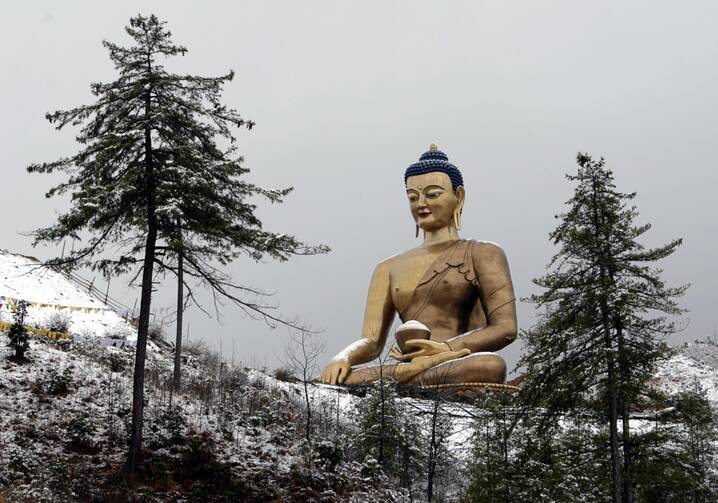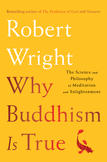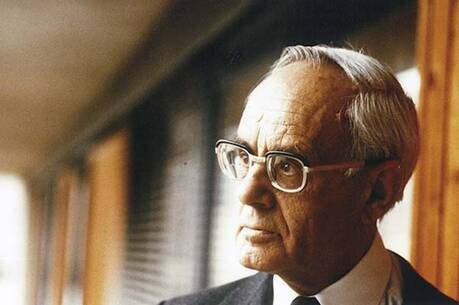Is Buddhism true?
Before “Buddhism” became the religious family of traditions that it is now—with its many schools and an elaborate tapestry of beliefs, rituals, and doctrinal and metaphysical systems expounded in voluminous scriptural sources—it was a spiritual path and simple way of life as lived and taught by a man whom his contemporaries around 2,600 years ago revered as an “awakened one” (Buddha). Transmitted from Asian societies to the West in different waves since the latter part of the 19th century, Buddhism now forms a part of the cultural and spiritual landscape of many Western societies.
What award-winning and best-selling author Robert Wright (The Evolution of God, The Moral Animal) presents in this new book and affirms as “true” is a distilled “common core” that, he points out, can be found across the spectrum of Buddhist practices and teachings. Wright’s concern is not with doctrines or beliefs as such, but with spiritual practice that can bring about a transformative shift in one’s view of oneself and of the world, and thus in one’s entire way of being. He writes from his own experience and reflection based on years of meditative practice under the guidance of his Western Buddhist teachers. These observations are rendered in a down-to-earth and highly readable style, with witty quips and self-effacing humility that give the book its distinctive appeal and persuasive power.
Some readers may dismiss the book as the gleanings of a “cafeteria Buddhist,” and thereby miss the import of its message.
Some readers may dismiss the book as the gleanings of a “cafeteria Buddhist” or relegate it to the category of the “spiritual but not religious” literature that proliferates nowadays, and thereby miss the import of its message. Wright himself maintains a cautious tone—“calling myself a Buddhist, it seems to me, would almost be disrespectful to the many Buddhists in Asia and elsewhere, who inherited and sustain a rich and beautiful religious tradition.”
The spiritual practice that Wright advocates in this book derives from Buddhist mindfulness and insight meditation, but practitioners of other Buddhist forms of meditation, such as Zen or Tibetan dzog chen—or, for that matter, of Christian forms including Centering Prayer or contemplation according to the Ignatian Spiritual Exercises—will find resonating features that also occur in their own inward journeys through the silent terrain. Those familiar with the Spiritual Exercises may recognize, for example, what Ignatius calls “consolation without previous cause” in Wright’s description of “powerful feelings of bliss or ecstasy” or “the gift of tears” Ignatius was also known for.
A secular naturalist himself, Wright offers an invitation to readers across the religious divide to engage in a simple (though admittedly not easy) form of spiritual practice that can, however gradually and unobtrusively over time, bear momentous implications for our individual and collective lives. Taking up this invitation to meditative practice may open our eyes (read: “awaken”) and point us to a way of addressing the critical issues facing our global community as we find ourselves on the brink of nuclear war or ecological destruction or both.
Wright puts his finger on the crux of the matter in a few lines in his second chapter:
Just look at all the tribalism--the discord and even open conflict along religious, ethnic, national, and ideological lines. More and more, it seems, groups of people define their identity in terms of sharp opposition to other groups of people. I consider this tribalism the biggest problem of our time.
This “tribalism,” which Wright names in a later part of the book as “the core evolutionary value of the specialness of self,” is none other than what the Buddha saw as the deluded notion of “self” that demarcates itself from “the other.” This is the root cause of the dissatisfactory and sorry state of our human condition as it plays out in our individual and communal existence. Christians would identify this with the “original sin” that leads us fallen humans to destructive thoughts, words and actions (that is, “actual sin”). Wright demonstrates how meditative practice can expose this deluded notion of self for what it is, as the cause of our own pain and suffering, as it is the cause of the pain and suffering we inflict on one another.
With meditative practice, we are enabled to take steps to liberate ourselves from the mesmerizing power this tribalism has over us.
With meditative practice, we are enabled to take steps to liberate ourselves from the mesmerizing power this tribalism has over us, to bring forth the wisdom of clarity and to usher in a world in which “metaphysical truth, moral truth, and happiness can align…a world that…appears more and more beautiful---something to marvel at.” Indeed, what a wonderful world it would be.
This article also appeared in print, under the headline “Transcending the self,” in the February 19, 2018, issue.










